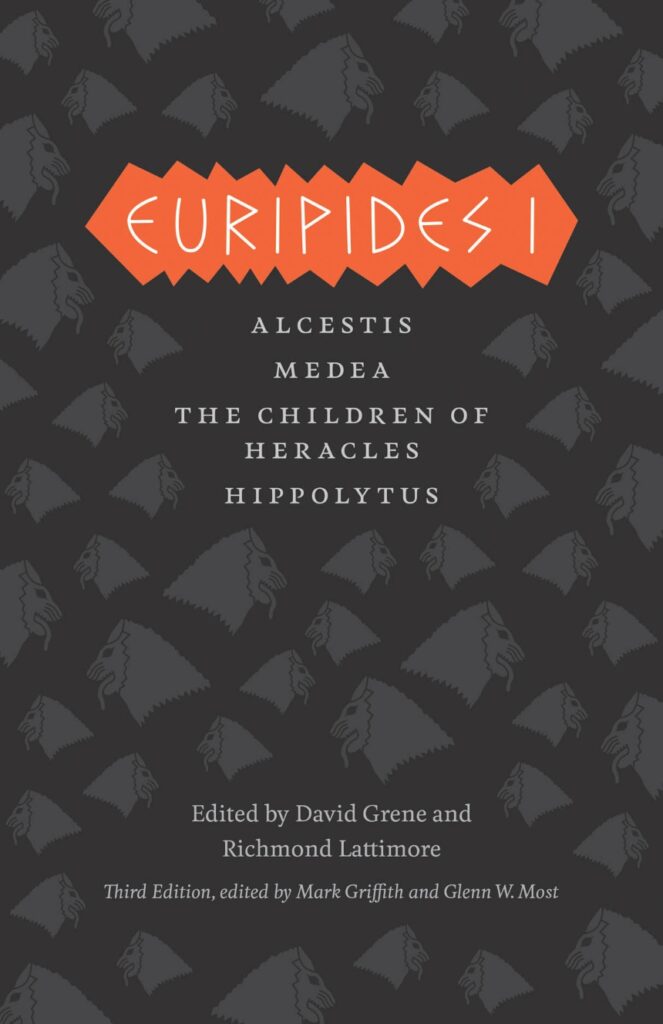Original language: Greek.
I read the version edited by David Grene and Richmond Lattimore.

Hippolytus
The ending, where a dying Hippolytus returns to his father Theseus and all the misunderstandings that led to tragedy are revealed, was the best part.
Medea
This play resonates much more with me than Hippolytus. No wonder it’s one of the most-performed classical plays today. Also, the translation is in beautifully idiomatic English. (The translation of Hippolytus as well.)
An example –
Creon: Grim scowling scourge against your husband — yes, that’s you, Medea.
I proclaim that you must leave this land in banishment,
and take your pair of sons along with you.
And no delay allowed.
Medea is a corker. It’s a tragedy and a horror movie.
Alcestis
There are a few lines that must be intentionally funny.
Heracles: Being and nonbeing are considered different things.
Admetus: That is your opinion, Heracles. It is not mine.
Or earlier when Apollo is arguing with Death, Apollo says “What is this? Have you unrecognized talents for debate?”
Alcestis – OK, but no Medea. A minor play.
Leave a Reply